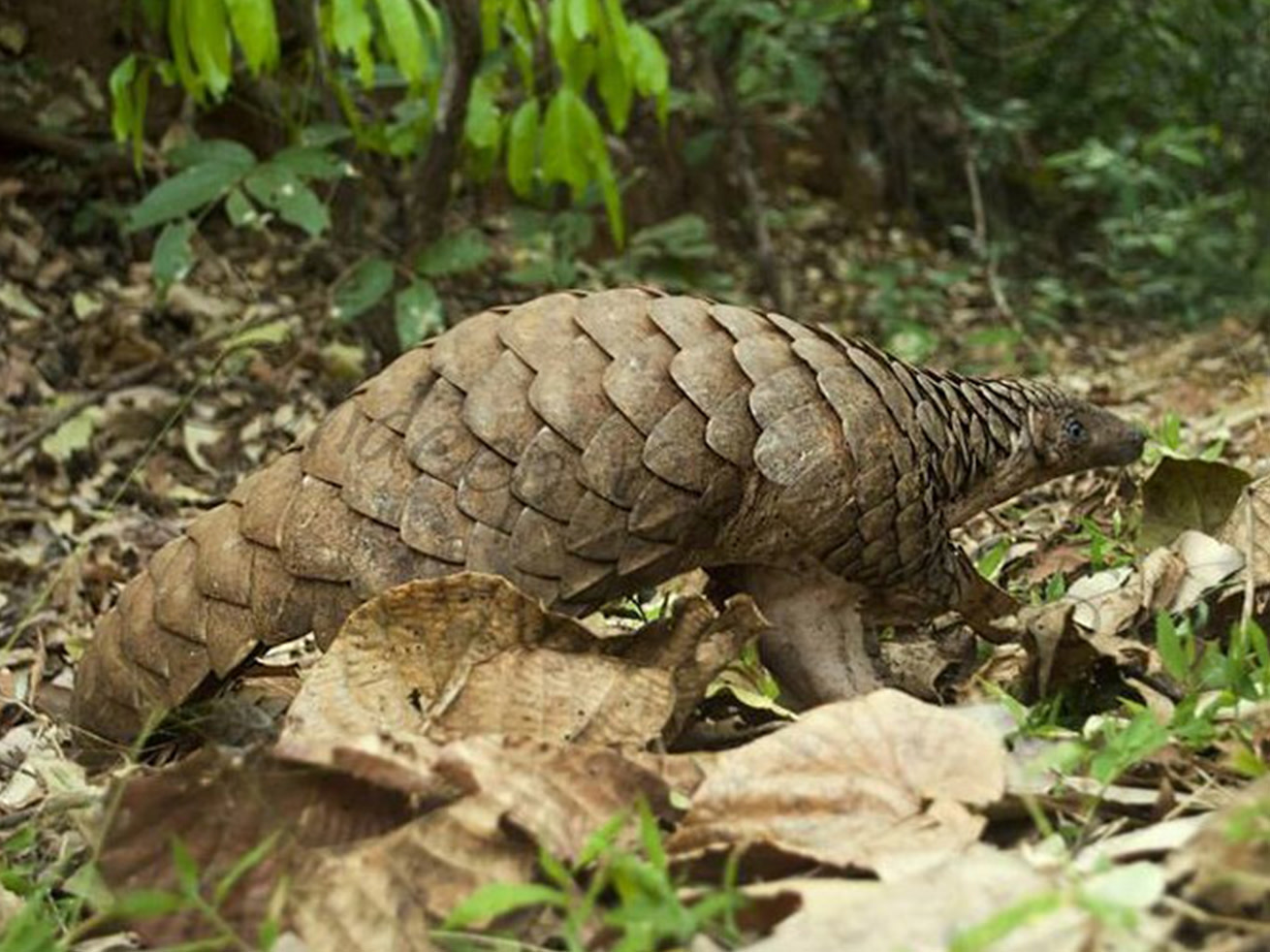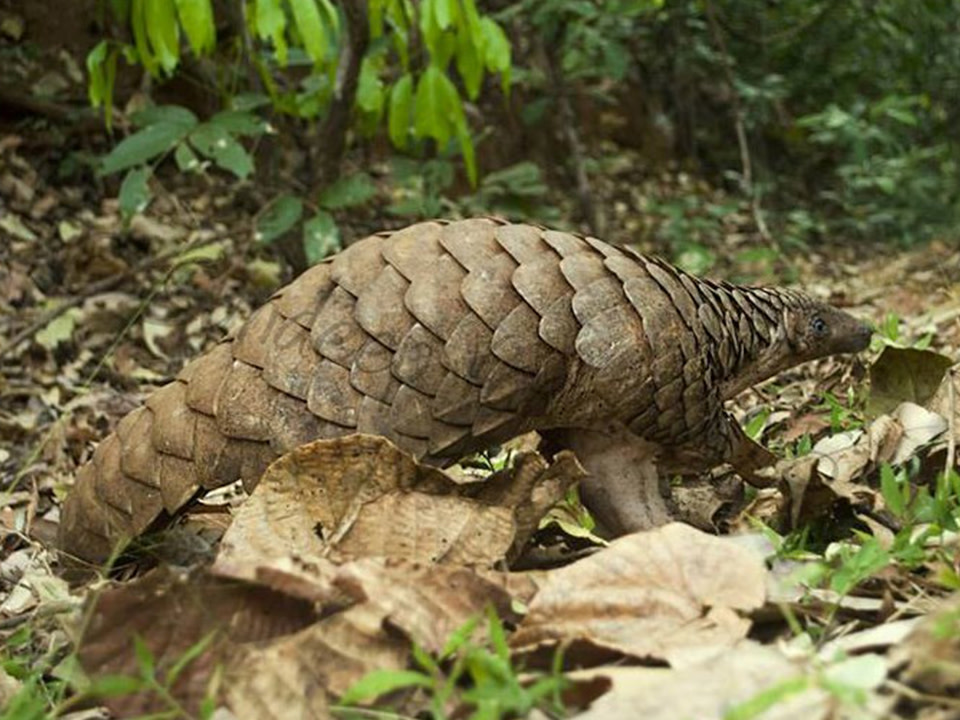 Listen to this article
•
15:34 min
Listen to this article
•
15:34 min

Though pangolins are called scaly anteaters and do look a little like armadillos, aardvarks, and even the mongoose, genetic evidence states that their closest relatives are actually cats, dogs, and bears. Large overlapping scales on their bodies provide an armour or shield, their most distinct characteristic. These scales, which are made of keratin, were evolved as protection for the animal. Sadly though, illogical human beliefs about the properties of their scales have taken the pangolin to the brink of extinction. Their meat too is considered desirable and pangolin curry can cost close to USD1,000 in Vietnam or China. Unfortunately, pangolin scales and pangolin meat fetch such huge sums of money in the illegal wildlife trade bound for markets in China and Southeast Asia, that the animal has now become the most poached and trafficked creature in the world.
Indian pangolins (Manis crassicaudata) are small burrowing animals native to the subcontinent. They are still found in India, Nepal, Pakistan, and Sri Lanka, while in Bangladesh they are close to extinct. Pangolins are solitary, shy, nocturnal creatures that live in forests, on trees, or on the ground. They make only the very rare and accidental appearance in front of humans.

Besides its scaly armour, the pangolin’s next most unique feature is its tongue, which is longer than its own body. It uses this sticky, long tongue to slurp out troops of unsuspecting ants that think they are safe inside their towering anthills. Ant eggs are considered a delicacy and even the strong mud walls that ants construct are no challenge for a pangolin, that uses its long claws to gain access.
In the last decade it is estimated that worldwide, over one million pangolins have been massacred for the illegal wildlife trade. India has realised the importance of the pangolin to our ecosystem and listed it under Schedule 1 of the Wildlife Protection Act 1972, giving it the highest level of protection. The sad news is that despite this protection and awareness, the pangolin is still one of the most smuggled animals in the country. Reports reveal that in India, 5,913 kilos of pangolin scales were confiscated by authorities in ten states between 2009 and 2014, before the shipments could reach China. Rough calculations mean more than 2,000 pangolins were poached for this purpose. The menace hasn’t stopped, every few months newspapers continue to report hauls of pangolin shells from traffickers. And these are just the ones who are caught.

In China, pangolin scales are dried, powdered, mixed with various ingredients and then cooked with oyster shells to create an alleged cure for excessive nervousness, and for women who are supposedly possessed by ogres and devils. It’s pretty clear, however, who is possessed with evil: the people killing this endangered animal and the end-user who encourages this horrendous trade.






